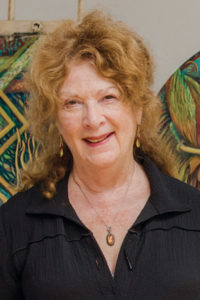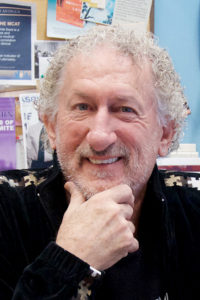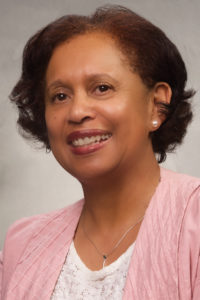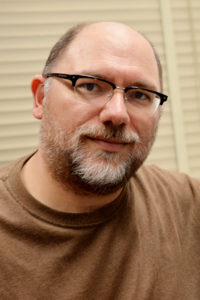Our faculty members participate in conferences around the world, conduct groundbreaking research, and publish books and journal papers that contribute to their field and highlight their expertise. We feature those accomplishments and more in this section.
College of Arts and Humanities

Gilah Yelin Hirsch, professor of art, will be a keynote speaker at the International Society for the Interdisciplinary Study of Symmetry conference “The Logic of Image: Visualization, Iconicity, Imagination, and Human Creativity,” taking place July 24-30 in Santorini, Greece. She is also showing her work in a solo exhibition, “Emanation, Radiance, Glimmer,” at the Art Factory in Santorini through July.
Natural and Behavioral Sciences
 Thomas Landefeld, professor of biology and pre-health adviser, and Christina Goode, associate dean of pre-professional programs at Western University of Health Sciences, recently presented the talk “The three R’s of effectively addressing the under-representation of minorities” on June 15-19 at the National Association of Advisors for the Health Professions Conference in Minneapolis. He also attended a pre-health adviser’s visit at Cleveland Chiropractic College in Kansas City to learn more about their degree programs.
Thomas Landefeld, professor of biology and pre-health adviser, and Christina Goode, associate dean of pre-professional programs at Western University of Health Sciences, recently presented the talk “The three R’s of effectively addressing the under-representation of minorities” on June 15-19 at the National Association of Advisors for the Health Professions Conference in Minneapolis. He also attended a pre-health adviser’s visit at Cleveland Chiropractic College in Kansas City to learn more about their degree programs.
College of Health, Human Services, and Nursing
 Mekada Graham, professor and chair of the Department of Social Work, and Professor Charlotte Williams of RMIT University in Melbourne, Australia, co-edited the textbook “Social work in a diverse society: Transformative practice with black and minority ethnic individuals and communities,” which was published in April 2016. The gap between the theory and the practice of working with African-American and minority ethnic groups presents an ongoing conundrum for social work. The textbook presents a new theory based on a rich understanding of the constraints and creativities of practice.
Mekada Graham, professor and chair of the Department of Social Work, and Professor Charlotte Williams of RMIT University in Melbourne, Australia, co-edited the textbook “Social work in a diverse society: Transformative practice with black and minority ethnic individuals and communities,” which was published in April 2016. The gap between the theory and the practice of working with African-American and minority ethnic groups presents an ongoing conundrum for social work. The textbook presents a new theory based on a rich understanding of the constraints and creativities of practice.
Expert Quotes
Recent quotes and/or interviews in the media from faculty
 “I would modify evaluation processes (grants, manuscripts, selection of faculty job interviewees, graduate school admissions) so that they are blind with respect to gender, ethnicity and institutional affiliation. There is substantial bias against women and ethnic minorities, and blind experiments have shown that removing names and institutional affiliations can radically change important decisions that shape the careers of scientists.” –Terry McGlynn, professor of biology, who was quoted on the website Vox with 33 science professionals who were asked what they would change about science.
“I would modify evaluation processes (grants, manuscripts, selection of faculty job interviewees, graduate school admissions) so that they are blind with respect to gender, ethnicity and institutional affiliation. There is substantial bias against women and ethnic minorities, and blind experiments have shown that removing names and institutional affiliations can radically change important decisions that shape the careers of scientists.” –Terry McGlynn, professor of biology, who was quoted on the website Vox with 33 science professionals who were asked what they would change about science.